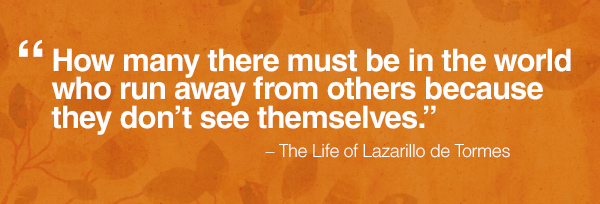
By Rabbi Will Berkovitz, CEO.
Recently, I read a book from the 16th century and was surprised to find a quote that feels very modern: “How many there must be in the world who run away from others because they don’t see themselves.” – The Life of Lazarillo de Tormes.
Upon reading this quote, I found myself reflecting upon our current civil unrest, the upcoming High Holidays and how different our world could be if we took this month of Elul seriously. For those unfamiliar with Elul, it is the month preceding the Jewish High Holidays and it is a time for deep reflection both as individuals, and as a community. During this period, our tradition teaches, we must reach out to “clean up” our relationships and seek reconciliation. The Hebrew word at the core of the holiday season is tshuvah – return. Our ancestors understood that returning is key to healing. There is no way around. The path must be through.
I suspect part of what causes us to turn away is not just that we don’t see ourselves, but that we do see ourselves. And we don’t like what we see. It is always easier to point the finger at someone else than to “look at our other three fingers pointing back at ourselves.” An aspect of healing, be it individual or communal, is for us to look internally and not just externally. It may feel better to cast blame, but it doesn’t change anything. Maybe in forgiving ourselves we can also forgive those around us. I envision widening circles of forgiveness, reconciliation and return – a collective time of repair and healing.

Part of what is causing so much pain, anger, fear and frustration is that we turn away rather than toward each other. We need to be willing to talk to each other – truly see each other in our wholeness and complexity – not as mere caricatures. Let’s not climb our ladders of assumptions even though deep down we know they are missing rungs and often have no foundation. Let’s turn away from always waiting to pounce on mistakes or missteps. As a mentor once suggested, “We need to look for people doing the right things right and recognize them for that, not the opposite.”
We need to approach people as true equals, and both talk and listen from a place that respects the inherent dignity and humanity of the person before us. What if we took this time to reach out to people with whom we have strong disagreements and engaged each other truly from a place of non-judgmental curiosity – from a place of love and respect. This can’t be a one-sided endeavor. Everyone has a story to tell and deserves to tell it. Perhaps then we could see their intrinsic worth and maybe we would feel ours was being seen as well. What if we tried to do that as a society? I wonder if we could create a new future if we took our old traditions a bit more seriously and re-envisioned them for today.
I know from experience this is easier said than done. And I often fail to live up to expectations, so as a start I want to apologize for all the places I have fallen short of your expectations this past year. And I want to thank you for sticking with me and all of us at JFS. If I have offended you in my words or writing this past year, I want to ask you for forgiveness and invite you to talk. My email is will@jfsseattle.org.
Shanah Tovah (Happy New Year),

Rabbi Will Berkovitz
Chief Executive Officer



